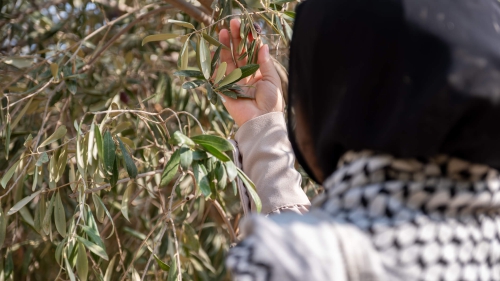Critical Reflections on Refugee Resettlement
Less than 1% of the world's more than 26 million UN-recognized refugees are invited to resettled in countries where they'll have legal status upon arrival and a pathway to citizenship. Refugee resettlement is often framed as a permanent "solution" to displacement--sometimes referred to as "winning the lottery." Yet, for many refugees, resettlement is another form of dislocation.
What challenges do refugees face upon arrival to the United States? How do their experiences compare to refugees in other parts of the world? How do existing structures of inequality shape the experiences of newcomers?
A panel discussion with four sociologists: Rawan Arar, Molly Fee, Heba Gowayed, and Blair Sackett.
Rawan Arar is a Postdoctoral Fellow in International and Public Affairs at Brown University and an Assistant Professor in the Department of Law, Societies, and Justice at the University of Washington. She completed her PhD in sociology at the University of California, San Diego.
Heba Gowayed is an Assistant Professor in Department of Sociology at Boston University and did her Postdoctoral fellowship in the Department of Sociology at Columbia University. She completed her PhD in sociology at Princeton University.
Research
Major refugee host states—including Turkey, Lebanon, Jordan, Pakistan, Kenya, Iran, and Bangladesh—are vital to the contemporary system of refugee management. These countries confront the challenges of porous borders and changing demographics. They address refugees’ urgent needs for food and shelter and the long-term challenges of education, unemployment, and the degradation of local infrastructure. The ways major host countries manage, control, and support refugee populations affects the flow of refugees to the Global North and the operations of international aid organizations. But the ability of states in the Global South to host refugees has received significantly less scholarly attention in comparison to their Western counterparts.
Publications
Arar, Rawan and FitzGerald, David Scott. “The Refugee System: A Sociological Approach” (Dec 2022).
Gowayed, Heba. “Refuge: How the State Shapes Human Potential” Princeton University Press (Apr 2022).
Arar, Rawan. 2021. “Understanding Refugees” in Societies of the Middle East and North Africa: Structures, Vulnerabilities, and Forces, edited by Sean Yom.
Fee, Molly and Rawan Arar. 2019. “What Happens When the United States Stops Taking in Refugees?” Contexts 18 (2): 18-23.
Arar, Rawan. 2017. “The New Grand Compromise: How Syrian Refugees Changed the Stakes in the Global Refugee Assistance Regime.” Journal of Middle East Law and Governance 9 (3): 298-312.
( Source: Watson Institute for International & Public Affairs at Brown University )
Topics: Human Rights, Humanitarian Crisis, Refugee Crises
Views: 663
Related Suggestions

















